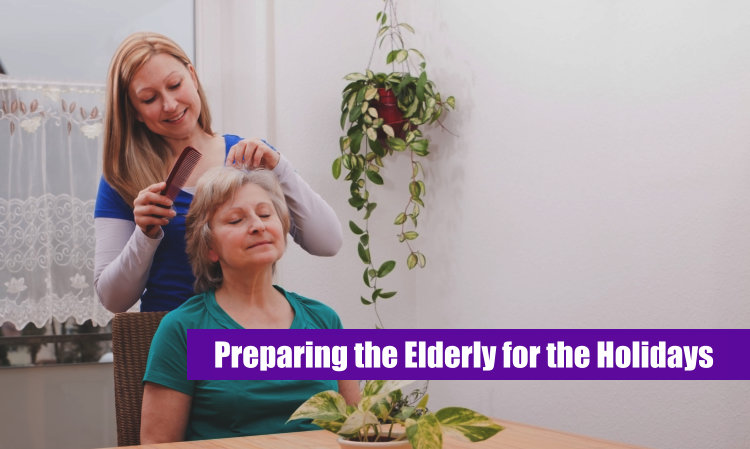
The holiday season is such a wonderful time to spend with family and friends. For the elderly, the holiday season can be depressing, stressful, and sometimes confusing if their physical, emotional, and at times, mental needs are not addressed.
For many seniors, holidays serve as a reminder of those that have passed on and how lonely the surviving partner may be today. Holidays may also remind them of their inabilities to participate in celebrations, and how they can’t do the things they used to so easily anymore.
Be prepared! Use the following ideas to help seniors through this potentially difficult time of year:
1) Plan ahead and respect your senior’s schedule. If they are used to waking up, eating, or going to bed at a certain time, follow their schedule as much as possible. Staying up later can be difficult and cause unneeded stress.
2) Older family members get tired very easily. The noise and commotion at large family gatherings can lead to irritability or exhaustion. Limit the number of activities or the length of time they are involved in each activity.
3) Eliminate obstacles. If you are planning to bring the holiday crowd to the home of an older person with memory impairment or behavioral problems, do not rearrange their furniture. This could confuse the person and cause anxiety. If the gathering is in another home, remove all slippery throw rugs and other items that could pose a threat to someone who has difficulty walking or has balance problems.
4) Involve them. If an older adult has physical limitations but wants to help with the holiday preparation, have them do simple but helpful tasks like greasing pans, folding napkins, sorting silverware, arranging flowers, or handing you the ornaments when decorating the tree.
5) Reminisce. Start looking at photo albums or videos of family members and friends that will be visiting. Avoid any comments that might embarrass them, such as, “don’t you remember?”
6) Create new memories. In addition to memories, seniors need new things to look forward to. Add something new to the holiday celebration, go window shopping, take a drive to see festive holiday decorations, or listen to the sounds of the season at a local restaurant.
7) Since most seniors are confined indoors, make sure their day contains activities that increase their exposure to daylight.
8) Monitor medications and alcohol. Be sure to help them adhere to their regular schedule of medications during the frenzy of the holidays. Pay attention to their alcohol consumption during holiday parties and family gatherings.
9) If travelling with a senior, here are some helpful suggestions:
- Distance: The first choice you will need to make is how long the trip is considered comfortable. Long flights can be particularly uncomfortable, and airport transfers can be stressful.
- Medical considerations: You should ascertain where the nearest hospitals are, and what insurance will cover. Next, speak to your loved one’s GP to ensure that all medications necessary can travel with you, and what risks may be involved.
- Hotel booking: Many hotels cater for senior clientele, but booking optimal rooms may be competitive. Call ahead to ensure that you can book a ground-floor, accessible room for your senior loved one. If there are any special requirements, such as meals, temperature regulation, or bed-type, make sure the hotel will cater.
- Activities: Speak to them about holiday planning to ensure that they get the most fun and relaxation out of their trip, while enjoying incredibly valuable family time.
- Extra Care: It may be the case that your senior loved one currently relies on the aid of a caregiver. Some families need to travel with their caregiver, while others may hire a local from the destination.

 Published November 18, 2016
Published November 18, 2016





